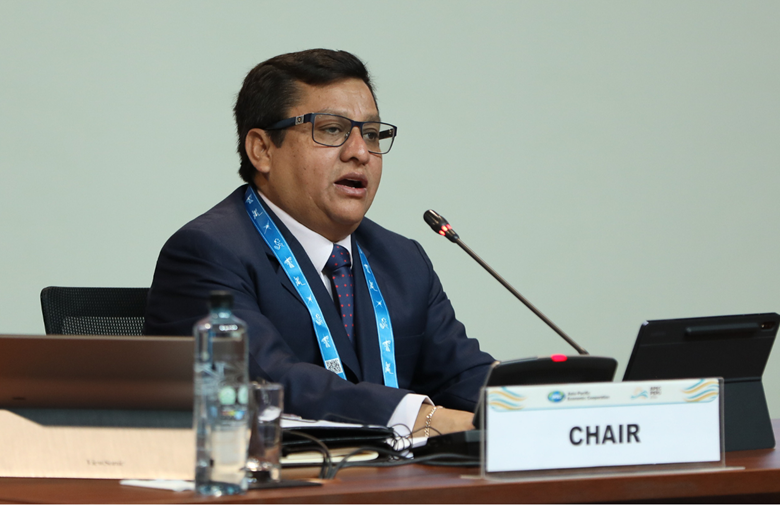
Addressing the mounting health challenges of the 21st century, including the newly declared outbreak of mpox, APEC health ministers forged ambitious and forward-looking policies aimed at building more resilient, inclusive and sustainable health systems across the Asia-Pacific region.
"The central theme of our sessions, Health Inclusivity: The Path to Empowerment and Growth that Leaves No One Behind, reflects our collective responsibility to ensure that all our citizens continue to have access to the health care they deserve, regardless of their gender, their social status and their geographical location," said Peru's Minister of Health Dr César Vásquez in his opening remarks.
The meeting in Lima explored the intersection of important issues such as gender and climate change with health. Minister Vásquez highlighted that it is impossible to discuss health without acknowledging the existential threat of climate change, and that Peru is committed to closing the gaps that have limit access to quality health services "especially for women who are fundamental pillars in our economies."
"Peru has seen first-hand how climate change magnifies the health crisis. Heat waves, heavy rains, and the increase in the incidence of vector-borne diseases such as dengue have forced us to rethink and strengthen our health system," Minister Vásquez said.
Ministers considered groudbreaking strategies to adapt and mitigate the effects of climate change on health, including preparedness for natural disaster, related epidemics and disease outbreaks, as well as policy levers in optimizing management of public health issues.
Carlos Kuriyama, director of the APEC Policy Support Unit, highlighted the significant work APEC has done in the area of gender and health, stating that the maternal mortality ratio on caused related to pregnancy and childbirth in the APEC region has decreased from 70 to 28 deaths for every 100,000 live births between 2008 and 2021.
"But certainly more work can be done in terms of women and health, for example, over 17 percent of women in reproductive age suffer from anemia and this percentage has not changed much since 2008," Kuriyama added.
Deliberating how APEC economies can integrate mental health into primary care services to address community needs and prevent mental disorders, Minister Vásquez urged his counterparts to prioritize mental health, considering that it is the cornerstone on which members build a better economy.
"Our mental health community efforts are designed to empower people by providing the support needed so that all of our citizens can thrive," Minister Vásquez said. "To this end, Peru is progressively increasing our budget and consolidating our decentralized approach in regions, which has already allowed the implementation of 435 community mental health services throughout our economy."
Ministers also heard from the Director General of the World Health Organization Dr Tedros Adhanom Ghebreyesus, who highlighted that investments in health services for women are investments in gender equality; investments in clean energy and low carbon health systems can reduce pollution and slow the pace of climate change and its health impacts; and investments in primary healthcare, including immunization and community mental health, can prevent diseases and disorders and the significant treatment costs they carry.
"This APEC meeting is a unique opportunity to share our experiences, learn from each other, and chart a joint path to a healthier future. In Peru, we are convinced that only through collaboration and mutual commitment can we overcome the challenges we face," Minister Vasquez concluded.






